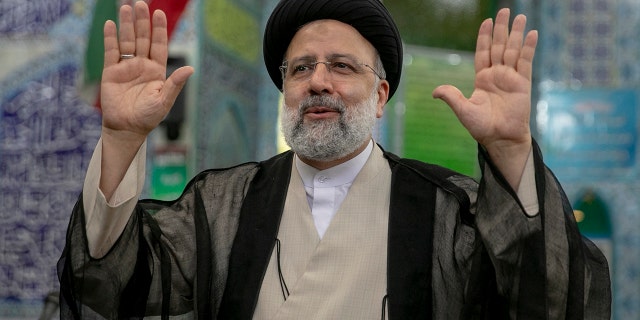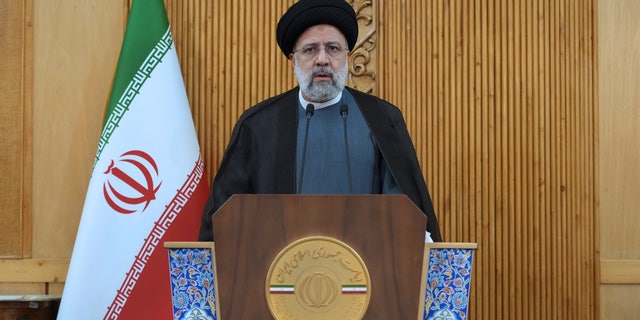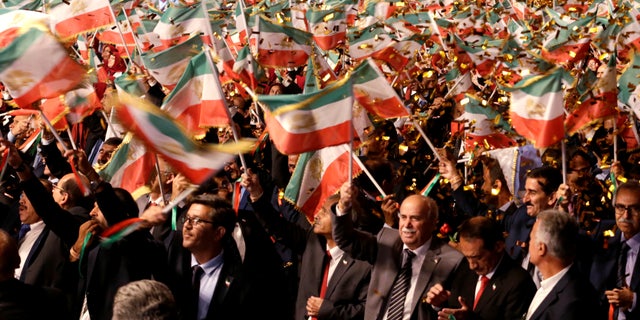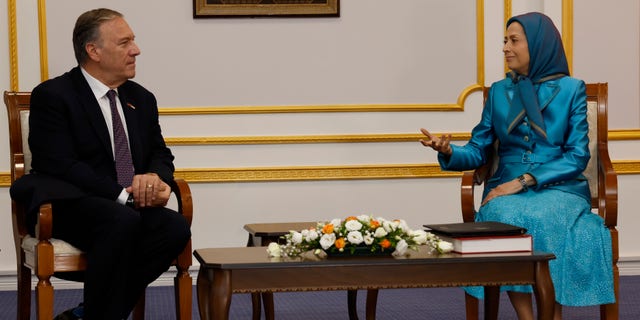By Peter Aitken
August 25, 2022 5:55pm EDT
Members of an Iranian opposition group have filed a lawsuit against the president of Iran for his role in the 1988 massacre of dissidents just weeks before he intends to speak before the U.N. General Assembly.
“The plaintiffs actually suffered the injuries that they claim they suffered; the people who were murdered actually were murdered. They were killed,” Steven Schneebaum, who filed the lawsuit on behalf of the victims, told Fox News Digital.
“There’s no doubt about that. Amnesty International confirms it. The State Department confirms it … We’re asking for an opportunity to tell our story in public in front of a federal judge, and I think my clients are entitled to that.”
Iranian President Ebrahim Raisi took office in August 2021 after an election marked by low turnout and accusations of election rigging.
US LAUNCHES SECOND SET OF STRIKES IN SYRIA AGAINST IRANIAN-BACKED MILITIAS

Ebrahim Raisi, a candidate in Iran’s presidential elections, waves to the media after casting his vote at a polling station June 18, 2021, on the day of the Islamic republic’s presidential election. (Majid Saeedi/Getty Images)
He played a key role in the “death commission” of political prisoners in 1988, followed by a stint as prosecutor general of Tehran between 1989 and 1994.
Amnesty International cites a figure between 4,500 and 5,000 men, women and children killed in prisons across Iran, with “the true number of dead … still unknown as the executions were carried out in secret.” A book published by Hossein Ali Montazeri, once known as Ayatollah Khomeini’s former deputy, cited a figure as high as 30,000, according to the Daily Telegraph.

Iranian President Ebrahim Raisi speaks before departing Tehran’s Mehrabad Airport for a trip to Oman May, 23, 2022. (AP Photo/Vahid Salemi)
“In the summer of 1988, Raisi and his cohorts literally determined who would live and who would die, and as many as 30,000 people were taken out to be executed, to be hanged sometimes in groups as large as 12 after hearings,” said Schneebaum, who also serves as an adjunct professor at the School of Advanced International Studies at Johns Hopkins University.
“The prisoners were asked basically one question: Do you repudiate your opposition to the regime, which is to say, in 90% of the cases, do you repudiate your membership or your support for the MEK?”
ISRAEL’S PM ON IRAN NUCLEAR DEAL: ‘WE WILL PREVENT IRAN FROM BECOMING A NUCLEAR STATE’
“Raisi has not set foot outside Iran very much in recent years,” Schneebaum explained. But he pointed to Hamid Nouri, another member of the 1988 commission who Swedish authorities arrested last year and who faced criminal charges for his role.
“He will be physically present in the United States, and our argument is that there is a sufficient connection to the United States to justify American federal court jurisdiction over him,” he added.

People wave flags during an event in Ashraf-3 camp, which is a base for the People’s Mojahedin Organization of Iran (MEK) in Manza, Albania, July 13, 2019. (Reuters/Florion Goga)
The greatest hurdle the lawsuit faces — other than ensuring Raisi is physically present in the U.S. — is the question of immunity. As a visiting dignitary, Raisi may have diplomatic immunity, but Schneebaum believes the structure of Iran’s government helps him as immunity should apply to “heads of state.”
A State Department handout on the subject notes that most privileges and immunities “are not absolute,” and the 1978 Diplomatic Relations Act replaced most of the more antiquated laws on the subject. According to the new provisions, some protections only apply to officials from nations that have ratified the Vienna Convention on Diplomatic Relations or to whom the U.S. president has granted privileges and protections.
Schneebaum’s case relies on some combination of those gray areas to go ahead.
IRAN SAYS IT WILL ONLY ALLOW NUCLEAR INSPECTIONS AGREED TO IN 2015 DEAL: ‘NOT ONE WORD MORE’
“The United States has, generally speaking, honored the absolute immunity of — and this is the important term — heads of state, unquote,” he explained. “Our argument is [that] Ebrahim is not the head of state of Iran. He may have the title of president, but he is not the leader as the Ayatollah Khamenei is the supreme leader [and] is therefore the head of state of Iran and indeed the Iranian constitution.”
The State Department did not respond to a Fox News Digital inquiry seeking clarification on the question of immunity.

On a trip to Albania, former Secretary of State Michael Pompeo meets with Maryam Rajavi. Rajavi leads the MEK, an Iranian opposition group in exile. (NCRI)
Schneebaum, who just filed his lawsuit in the U.S. Court for the Southern District of New York, cited previous lawsuits such as the case against former Philippine dictator Ferdinand Marcos, whom a U.S. court found guilty of human rights abuses in 2011. He filed the case relying on the Torture Victim Protection Act and argued that the question of statute rests on the accused making themselves available to federal jurisdiction.
Raisi avoided the Cop26 climate conference in Glasgow last year after calls for his arrest should he step foot in the U.K., and Schneebaum acknowledged his lawsuit might have a similar effect, but he believes his clients — victims of the regime — should have their chance.
